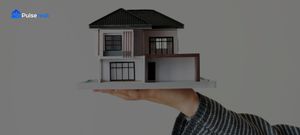Wildfire Watch: Analyzing Property Risk and Values in Vulnerable Zones
Wildfires pose a significant threat to communities across the United States, impacting not only safety but also property values and insurance rates. This analysis delves into the relationship between wildfire risk scores and real estate in several cities, examining the potential implications for homeowners and investors.
Understanding the Risk Landscape
Our analysis focuses on cities with varying degrees of wildfire risk, alongside other natural hazards. The data reveals a complex interplay of factors that contribute to overall property risk. For instance, Nashville, CO, exhibits a riskIndexScore of 84, while Seattle, FL, has a lower score of 50. This difference highlights the varying levels of overall risk exposure in these locations.
It's important to note that the riskIndexScore is a composite measure, reflecting the combined impact of multiple hazards. In Nashville, CO, the wildfire hazard score is 3, while other hazards like flood (35), hurricane (36), tornado (32), and earthquake (58) contribute to the overall risk. In contrast, Seattle, FL, faces a wildfire hazard score of 46, significantly higher than Nashville, CO, but its hurricane risk is a substantial 81.
City-Specific Risk Profiles
Nashville, CO
Nashville, CO, with a population of 57362, presents an interesting case. While its overall riskIndexScore is 84, the wildfire hazard score is relatively low at 3. However, the city faces considerable risk from other natural disasters, particularly earthquakes, with a score of 58. The median sale price and other real estate metrics are not currently available for this location.
Seattle, FL
Seattle, FL, a larger city with a population of 754970, has a riskIndexScore of 50. Its wildfire hazard score is 46, indicating a more significant wildfire threat compared to Nashville, CO. The city also faces a high hurricane risk, scoring 81. Like Nashville, CO, specific real estate data such as median price and days on market are not available.
Dallas, AZ
Dallas, AZ, with a population of 866292, has a riskIndexScore of 65. The wildfire hazard score is 22, placing it between Nashville, CO, and Seattle, FL, in terms of wildfire risk. However, Dallas, AZ, faces a very high flood risk, scoring 93, and a low earthquake risk of 0. Real estate data for Dallas, AZ, including median price and inventory, is not currently available.
Dallas, NC
Dallas, NC, a city with a population of 604419, presents a different risk profile. Its riskIndexScore is 25, the lowest among the cities analyzed. The wildfire hazard score is 37, and the earthquake risk is high at 98. As with the other cities, specific real estate metrics are not available.
Raleigh, CA
Raleigh, CA, with a population of 972681, has a riskIndexScore of 86, one of the highest in the dataset. The wildfire hazard score is 54, indicating a substantial wildfire threat. The city also faces high risks from flood (89) and earthquake (76). Real estate data, such as median price and homes sold, is not currently available for Raleigh, CA.
Exploring Additional Cities and Their Risk Profiles
Expanding our analysis to other cities reveals further insights into the relationship between hazard risks and location. Atlanta, CA, for example, has a riskIndexScore of 77 and a wildfire hazard score of 35. Houston, CA, on the other hand, has a lower riskIndexScore of 48 but a higher wildfire hazard score of 50. These variations highlight the importance of considering specific local conditions when assessing property risk.
Miami, TX, presents a unique case with a riskIndexScore of 89 and a wildfire hazard score of 72. Austin, AZ, has a slightly higher riskIndexScore of 90, but a much lower wildfire hazard score of 14. Tampa, FL, has a riskIndexScore of 45 and a wildfire hazard score of 76, while another Tampa, TX, has a riskIndexScore of 43 and a wildfire hazard score of only 24.
Nashville appears in multiple states in the dataset. Nashville, CO, has a riskIndexScore of 99 and a wildfire hazard score of 78. Nashville, WA, has a riskIndexScore of 96 and a wildfire hazard score of 58. Finally, Tampa, OR, has a riskIndexScore of 59 and a wildfire hazard score of 6.
The Impact on Property Values and Insurance
While specific real estate data is not available for these cities, it's reasonable to assume that areas with higher wildfire risk may experience downward pressure on property values. Buyers may be hesitant to invest in areas prone to wildfires, leading to decreased demand and potentially lower prices. Insurance costs are also likely to be higher in high-risk zones, further impacting affordability.
Mitigation Strategies and Future Outlook
Homeowners in wildfire-prone areas can take steps to mitigate their risk, such as creating defensible space around their homes, using fire-resistant building materials, and maintaining adequate insurance coverage. Community-level efforts, such as vegetation management and improved firefighting resources, are also crucial for reducing wildfire risk.
As climate change continues to exacerbate wildfire conditions, it's essential for homeowners, investors, and policymakers to understand the risks and take proactive measures to protect communities and property values. Further research and data collection are needed to fully understand the complex relationship between wildfire risk and real estate markets.
Data Summary
The data analyzed reveals significant variations in wildfire risk and overall hazard exposure across different cities. While specific real estate metrics are not available, the risk scores provide valuable insights into the potential impact on property values and insurance costs. Continued monitoring and analysis are crucial for informed decision-making in wildfire-prone areas.
For example, the difference in wildfire hazard scores between Seattle, FL (46), and Nashville, CO (3), is substantial, suggesting a potentially greater impact on property values in Seattle, FL, if real estate data were available. Similarly, the high flood risk in Dallas, AZ (93), could offset the lower wildfire risk (22), creating a complex risk profile for potential homeowners.
The riskIndexScore of 99 in Nashville, CO, compared to the riskIndexScore of 25 in Dallas, NC, highlights the wide range of overall risk exposure across different locations. While wildfire is a concern, other hazards such as earthquakes, floods, and hurricanes also play a significant role in determining the overall risk profile of a city.
The population of Raleigh, CA, is 972681, while the population of Nashville, CO, is 57362. This difference in population size could influence the overall impact of wildfires on the real estate market, as larger cities may have more resources to mitigate the risks.
Finally, the wildfire hazard score of 78 in Nashville, CO, compared to the wildfire hazard score of 6 in Tampa, OR, demonstrates the localized nature of wildfire risk. Even within the same region, different communities may face significantly different levels of wildfire threat.



_thumb.jpg)